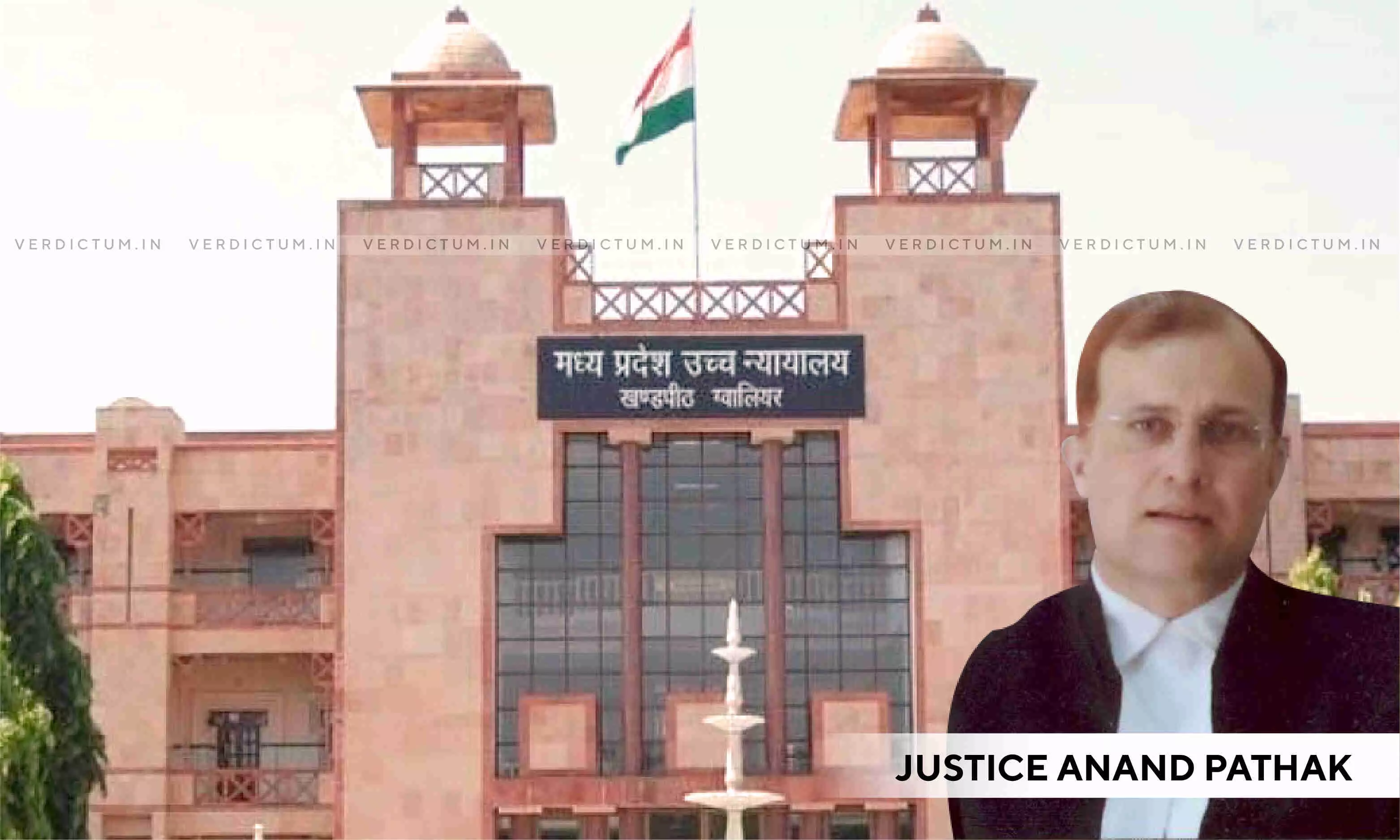
Section 243 CrPC Doesn’t Bar Investigating Officer Of Cross Case To Appear On Behalf Of Accused: Madhya Pradesh HC
 |
|The Madhya Pradesh High Court observed that the Investigating Officer of cross case is not barred under Section 243 of the Criminal Procedure Code (CrPC) to appear on behalf of the accused.
The Gwalior Bench observed thus in a miscellaneous criminal case in which a person had challenged the order of the Special Judge by which an application under Section 311 of CrPC for calling the witnesses was rejected.
A Single Bench of Justice Anand Pathak held, “This is a case in which petitioner is facing trial as accused (in Crime No.171/2018) and in one case he is complainant (Crime No.173/2018). Matter is at the stage of evidence for defence. Section 243 of Cr.P.C. provides such mechanism. Scheme of Section 243 of Cr.P.C. indicates that defence/accused can produce his evidence and it nowhere bars the Investigating Officer of cross-case to appear on behalf of accused in the case in which he is complainant so that truth can come to the fore as it would help the cause of justice to the extent where his act vicarious or individual or the extent of role would be determined.”
The Bench relied upon the judgment of Apex Court in the case of T. Nagappa v. Y.R. Muralidhar, 2008 (5) SCC 633, in which it was held that an accused has a right to fair trial and this is his fundamental right as enshrined under Article 21 of the Constitution.
Advocate Siddharth Sijoriya appeared on behalf of the petitioner while Public Prosecutor Rajeev Upadhyay appeared on behalf of the respondent.
Brief Facts -
In 2018, a complaint against the petitioner/accused and other persons stating that the complainant along with others went to river for bathing where the accused along with his family members came there and started abusing and beating him with sharp weapons. Thereafter, they went to the police station where an FIR was lodged for the offence under Sections 147, 148, 149, 307, 323, and 294 of the Indian Penal Code (IPC) and Sections 3(2) (v-a) and 3(1)(R) of The Scheduled Castes and the Scheduled Tribes (Prevention of Atrocities) Act, 1989 against the accused. Another FIR was lodged at the instance of the accused against the complainant for the offence under Sections 294, 323, 324, 506, and 34 of the IPC.
The High Court after hearing the contentions of the counsel noted, “If accused intends to bring a witness in his defence and does not intend to protract the trial or his prayer is not vexatious then in the interest of justice his prayer ought to be allowed. One judgment of Bombay High Court is also available in the case of Kamlakar Atmaram Kadu and Ors. vs. State of Maharashtra, 2000 (2) MPLJ 106. In the said case, prosecution given up the evidence of Investigating Officer, and therefore, to bring truth before the Court, an application was moved by accused under Section 243 of Cr.P.C. and same was allowed.”
The Court further took note of the fact that there are two cases wherein in one case the petitioner is accused whereas, in the other he is the complainant and that in the former case, an application preferred by the Special Public Prosecutor for calling the witnesses has already been allowed while the application of the petitioner seeking same prayer has been rejected by the trial court.
“Both the trials are going on simultaneously before the trial court. … Petitioner intends to bring the witness to susbtantiate his position in the case whereby exact nature of individual role or motive or nature of allegation may get some factual benefits whereby he is facing trial as accused. In the process, justice would be the ultimate beneficiary because by this process truth may come about the exact nature of incident. It would not cause any dent to the prosecution because that aspect must have been clarified by the accused while appearing in the witness box as defence witness”, it said.
The Court added that since in this case, petitioner is accused and witness has already been recalled while allowing the application under Section 311 of CrPC of Special Public Prosecutor, therefore, no prejudice would be caused in allowing the application preferred by the petitioner.
Accordingly, the High Court allowed the petition, quashed the impugned order, and directed the Trial Court to call relevant witnesses as sought to be called by the petitioner in his application for deposition on the next hearing date.
Cause Title- Veer Singh v. The State of Madhya Pradesh